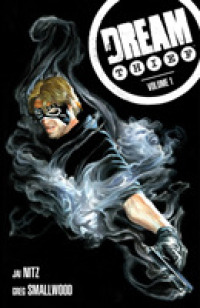- ホーム
- > 洋書
- > ドイツ書
- > Humanities, Arts & Music
- > Linguistics
- > english linguistics
Full Description
Failure as a pervasive occurrence in life has rarely been investigated by sociology, even though the collapse of plans, unattainability of goals and breakdown of vital relationships are ordinary experiences. The study of early-21st-century fiction reveals that imaginative literature at present explores the lacunae of failure, disillusionment and collapse as central narrative themes. About fifty years after Samuel Beckett, in whose works the failing of expression became a major concern, postmillennial narratives expose disruption or defeat as subject matter and literary trope. Unheroic failure as a motif makes its variegated appearance in diverse areas of human life such as love, religion, art, and social community. The narratives explore it as the individual's participation in common humanity.
Contents
Introduction: The Cultural Context of the Failure Theme in
Fiction, and the Purpose of this Study
I. Human Failure
Narrative Identity and Failure in Short Fiction
Failure in the Novel: A Small Tale, Generally of Love
The Trivial, and the Novel as 'a Small Tale'
Personal Failure and the Political (I): Irish Fictions
Failure and the Observance of the Ordinary
Personal and the Political (II): Postcolonial
Results: Failure, Identity, and the Ordinary
Transitional Section: Failing Aspirations of Humanism
II. Failure and the Artist
The Failing Artist in a Short Story Cycle
The Fictional Artist and His Failing in the Novel
Intermediate Results
Partial Failure: Divergence of Art and Life
Failure and Triumph of the Fictional Artist in the Novel: A Paradox
Irony and Black Humour: Artistic Failure vs. Celebrity
Success and Failure in 21st-Century Biofictions
Conclusion








